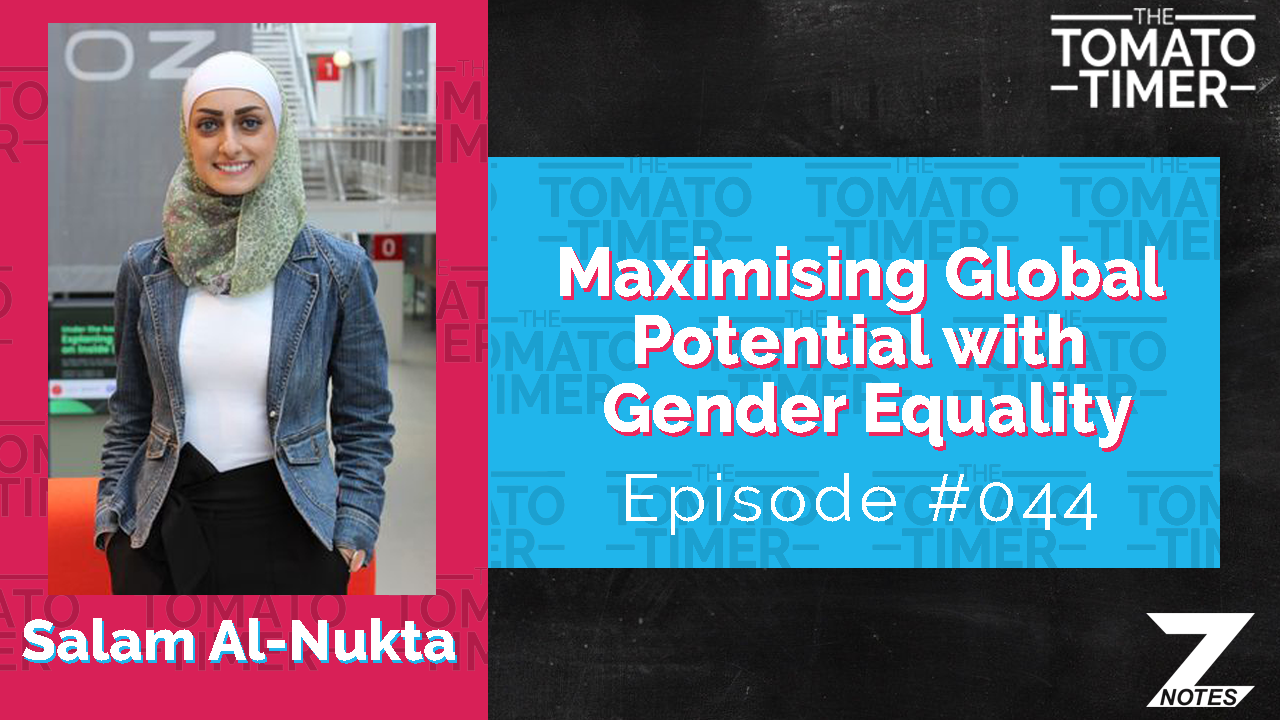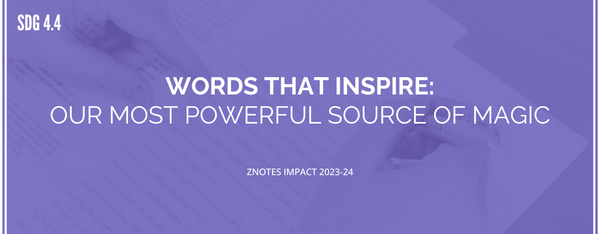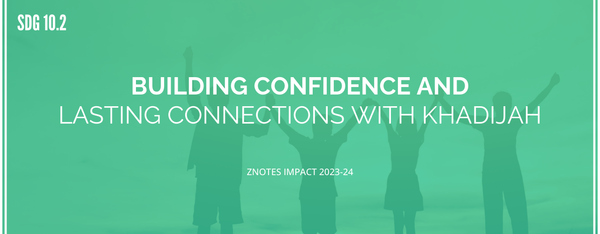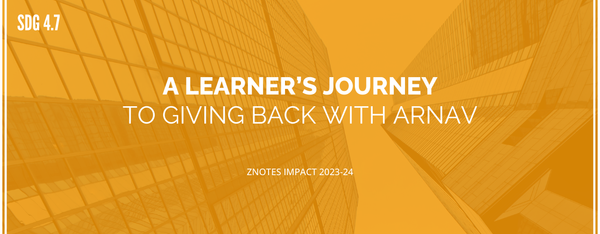TTT#44: "Maximising Global Potential with Gender Equality" with Salam Al-Nukta
Often, the world around seems too bleak to hope for it to get better. But if you look around, you see individuals rising through all odds with the belief to make it happen, groups coming together with a shared fundamental vision to strive towards an aim. And perhaps, the idea of change does not feel as far-fetched.
Salam Al-Nukta's 'ChangeMakers' is one such initiative. It provides coding classes to young people, including girls, defying the chauvinistic stereotypes associated with the field. It exposes girls to the possibility of STEM being something they too can be involved with and empowers them to make decisions based on their interests and experiences.
Salam faced a couple of other gender-based technical difficulties, such as increased hardship for accessing funds, restrictions on staying out late and the like. But she believes that we've progressed in these areas, and is hopeful for the future.
She also mentions numerous socio-cultural-familial factors often act to discourage girls from venturing into STEM and entrepreneurship. The intensity of such forces can be such that some end up internalizing the misogynistic thoughts exposed to them. Eventually, they believe that they are not capable of leadership and technology.
Therefore, women often have self-doubt and low confidence. If they succeed in battling it all, there are innumerable stereotypes regarding how a woman should be, making it impossible for a woman to just be. "Too soft", "too harsh", "give too many instructions" or perhaps "too less." But if there is too much of anything at all, that is just too many excuses; excuses operating dynamically to keep women and other marginalized genders tied within unfairly orchestrated circumstances.
Considering how deeply rooted such phenomena are, reinforced by traditional misinterpretations, these ideas are transmitted across generations. We need a radical shift in mindset, but there is little scope when cycles of oppression are persistently being cultivated.
Not only are such situations unjust but also end up overlooking a vast pool of potential. Choosing one approach over diverse perspectives is equivalent to losing something in every field. The costs of these, apart from grounds of morals and justice, are detrimental. For example, the systematic exclusion of women from medical research has proven to result in treatment that is not as effective for women.
The world consists of a beautiful spectrum of intersecting identities. And it's high time for us to accommodate what value each inherently has. Salam recognizes this, rooting for embracing diversity and making the world a better place.
Salam leaves us with finals bits of advice, calling for following one's passion to the greatest extent possible, being unafraid of making hard decisions. But at the same time, she emphasizes the significance of a support system. Don't hold yourself back from doing unconventional stuff, but ensure that you are emotionally ready for what you are taking in.




